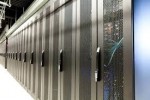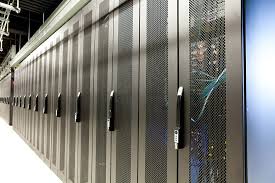As businesses and organizations increasingly rely on the vast potential of data-driven operations, comprehending the significance and functionality of data centers becomes essential. In this article, we will help you to delve into the depths of data centers, unraveling their critical role and shedding light on their intricate workings.
The Significance of Data Centers:
Data centers serve as robust repositories, housing a colossal amount of digital information and functioning as centralized hubs for computing resources. They form the nucleus of operations for numerous industries, encompassing everything from banking, healthcare, e-commerce, and entertainment to research and development. The extensive network of data centers facilitates real-time data processing, rapid access to information, and uninterrupted online services – cornerstones for modern-day business continuity and competitiveness.
The Architecture and Components:
A data center’s architecture is carefully designed to optimize performance, reliability, and security. The primary components include:
Servers: The backbone of a data center, servers handle data storage, processing, and distribution to fulfill the diverse demands of users and applications.
Networking Infrastructure: High-speed and redundant networking infrastructure ensures seamless data transfer within the data center and beyond.
Storage Systems: Data centers rely on advanced storage systems, such as solid-state drives (SSDs) and hard disk drives (HDDs), to safeguard and deliver data promptly.
Cooling Systems: Due to the substantial heat generated by the vast array of servers, sophisticated cooling systems are employed to maintain an optimal temperature and prevent hardware failure.
Power Supply: Uninterrupted power supply through backup generators and redundant power feeds is critical to avoid disruptions in data center operations.
Security Measures: Data centers implement comprehensive security protocols to safeguard data and protect against unauthorized access or cyber threats.
Data Center Classification:
Data centers can be classified based on their size, purpose, and accessibility:
Enterprise Data Centers: Owned and operated by individual companies to support their internal IT needs.
Colocation Data Centers: facilities that provide space and resources for multiple organizations to rent server space and networking equipment. LA Colocation from a provider such as Electric Kitten would be a good example of this classification.
Cloud Data Centers: Infrastructure owned and managed by cloud service providers, delivering scalable and on-demand computing resources to customers.
Data Center Efficiency and Environmental Impact:
As data centers continue to expand to accommodate the exponential growth in digital data, concerns about energy consumption and environmental impact arise. To address these issues, data centers adopt various strategies for energy efficiency, such as virtualization, advanced cooling techniques, and renewable energy sources. Additionally, industry standards and certifications, like LEED and Energy Star, are leveraged to promote environmentally friendly practices and reduce their carbon footprint.
The Future of Data Centers:
The future of data centers lies in their ability to adapt to evolving technologies and ever-increasing data demands. Innovations such as edge computing, artificial intelligence, and quantum computing will play pivotal roles in shaping the next generation of data centers. As these technologies mature, data centers will become even more efficient, secure, and indispensable in facilitating our interconnected world.



